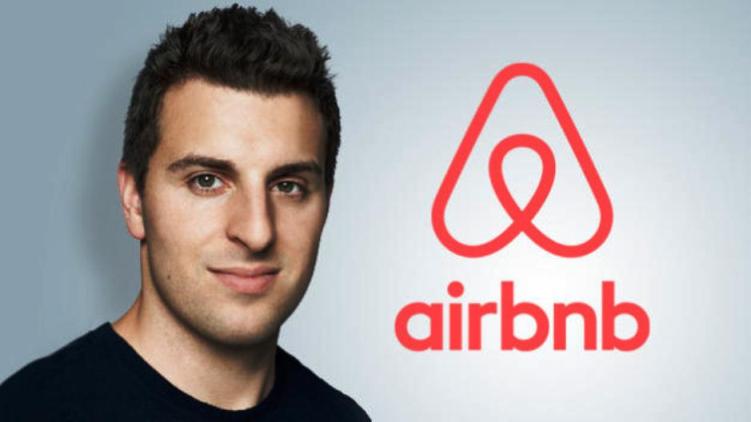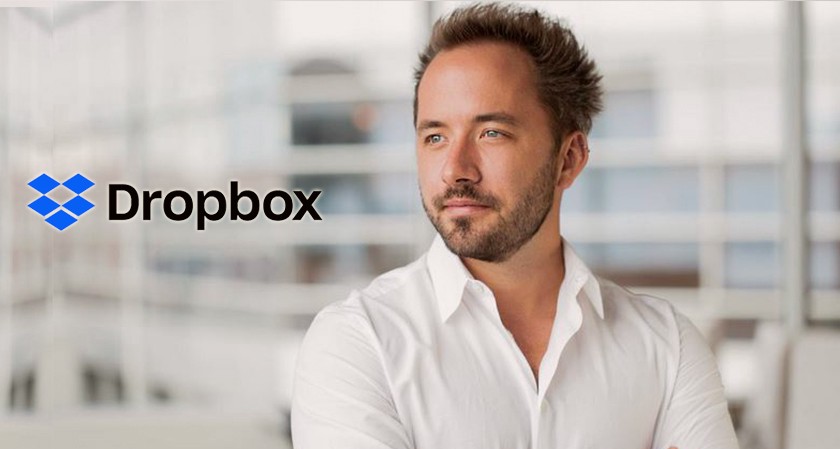8 Millennials running billion-worth tech companies (part 2)
Check Part 1 of this article featuring Millennials Adam D’Angelo (QUORA), Alexis Ohanian (REDDIT), Melanie Perkins (CANVA) and Ben Silbermann (PINTEREST).
8 MILLENNIALS RUNNING BILLION-WORTH TECH COMPANIES (PART 2)
5. BRIAN CHESKY, co-founder and CEO of AIRBNB ($26 billion)

Co-founder & CEO Airbnb Brian Chesky (source: moneyinc.com)
Brian Chesky (38) is the co-founder and CEO of Airbnb, the vacation rental online marketplace which disrupted the hospitality industry.
Brian launched Airbnb in 2008 after he and his co-founders rented out an air mattress in their living room, effectively turning their apartment into a bed and breakfast, to offset the high cost of rent in San Francisco. Airbnb is a shortened version of its original name, AirBedandBreakfast.com.
The company’s mission is to connect people to unique travel experiences and create a world where anyone can belong anywhere.
AIRBNB STATISTICS
Airbnb offers over 7 million accommodations and 50,000 handcrafted activities, all powered by local hosts. The platform helps them monetize their spaces while keeping the financial benefits of tourism in their own communities.
The company brands itself as an economic empowerment engine promoting people-to-people connection, community and trust around the world.
The top 3 countries where Airbnb has had the highest impact are the U.S. ($33.8 billion), France ($10.8 billion) and Spain ($6.9 billion).
2 million people are staying on Airbnb per night on average with an all-time number of arrivals of 750 million people.
There are 2.9 million hosts in 200 countries worldwide. The company charges a 3% service fee for hosts and provides a $1 million protection for property damage.
With the travel and hospitality industry affected globally by the coronavirus pandemic, the company was forced to take drastic measures to adapt to new circumstances.
In a letter sent to Airbnb employees in May, Brian announced that he had to reduce the size of the Airbnb workforce.
The company laid off nearly 1,900 employees (around 25% of its staff) and expects its 2020 revenue to amount to half of last year’s, around $2.4 billion.
Brian also mentioned that in order to survive, the company will need to evolve accordingly and reduce the investments in activities that do not directly support the core of its host community.
“We don’t know exactly when travel will return and when travel does return, it will look different”, says Brian.
As of 2020, the company’s valuation has dropped to $26 billion.
6. EVAN SPIEGEL, co-founder & CEO of SNAPCHAT ($32.29 billion)

Co-founder & CEO Snapchat Evan Spiegel (source: medium.com)
Evan Spiegel (30) is the co-founder and CEO of Snapchat. He launched the famous app while still a student at Stanford University. Although his idea of an app with ephemeral messaging was ridiculed by his classmates, the undeterred Evan launched it in 2011. It was a prototype named Picaboo and within just one year, the app now renamed Snapchat had reached 1 million daily active users.
Facebook and Google offered Evan and his co-founders $3 billion and $30 billion respectively to buy Snapchat. Both offers were turned down. Snapchat is now valued at $32 billion.
SNAPCHAT STATISTICS
In 2019, Snapchat had almost 300 million monthly active users and generated $1.7 billion in revenue.
A pioneer of augmented reality, Snapchat brought the technology to the mainstream via its filters.
Over 75% of Snapchat users engage with augmented reality daily (180 million in Q2 2020).
The average Snapchat user sends 34 snaps per day and spends 30 minutes daily using the app.
Snapchat daily video views average of 10 billion.
In 2018, the company launched Snapchat Originals featuring original video content shot for Snapchat specifically by established names such as NBCUniversal, the BBC, ABC and Metro-Goldwyn-Mayer. For 2019, Buzzfeed was announced as one of the app’s contributors. Seeing that one of the Snapchat Originals series, Endless Summer counted 28 million viewers over its first series, it looks like this type of offering was a good business decision.
Last year also saw the launch of a new product, Snap Games – a new social gaming platform within the app. According to Phil Larsen, head of Snap Games, more than 100 million Snapchatters have played Snap Games globally.
7. PATRICK COLLISON, the co-founder of STRIPE ($36 billion)

Co-founder and CEO Stripe Patrick Collison (image: startup365.fr)
Stripe is a technology company that builds economic infrastructure for the internet. Businesses of every size use the company’s software to accept payments and manage their businesses online. The company’s mission is to increase the GDP of the internet.
Patrick Collison co-founded Stripe in 2010 after receiving investment from PayPal co-founder Peter Thiel, Elon Musk and Sequoia Capital whose investments focus mainly on tech companies.
Stripe provides solutions for eCommerce & retail, B2B platforms, software as a service, B2C marketplaces, non-profits & fundraising.
STRIPE STATISTICS
Millions of companies in over 120 countries use Stripe to start, run, and scale their businesses. Some of the largest companies in the world are Stripe users such as Google, Amazon, Uber, Microsoft, Nasdaq, National Geographic, Facebook, Zoom and Salesforce.
More than 100,000 platforms are using Stripe Billing to manage subscriptions and invoices and 90% of US adults have bought from businesses using Stripe.
Stripe-hosted invoices get paid 3x faster than typical invoices.
Businesses recover 41% of failed payments through Stripe’s automatic card updates and smart retries.
For businesses that launched on Stripe since the onset of the coronavirus in the US, Stripe will shortly have facilitated $1 billion in sales.
The company’s machine learning models train on billions of data points and help increase revenue across conversion, fraud, revenue recovery, and more.
The company is also running an environmental program aiming to mitigate the threat of climate change. To this goal, Stripe announced this year its Negative Emissions Commitment by pledging at least $1 million per year to pay, at any price, for the direct removal of carbon dioxide from the atmosphere.
With $2 billion on its balance sheet, Stripe is valued at $36 billion.
8. DREW HOUSTON, co-founder & CEO of DROPBOX ($8 billion)

Dropbox co-founder & CEO Drew Houston (image: medium.com)
Drew Houston (37) co-founded Dropbox in 2007 while a student at MIT when he got fed up with the lack of seamless storage solutions for his files.
Although Dropbox began thirteen years ago as a file hosting service provider, today the platform defines itself as a smart workspace which limits the noise and complexity so users can focus on work that matters.
Dropbox brings together content, tools, people and conversations in a single digital environment.
Also, the platform uses Artificial Intelligence to suggest users which content they will need for a meeting or which content might be relevant to a document they are editing. Users are provided with a new way to work where they can stay focused and manage their team efficiently.
What type of work do Dropbox users accomplish with the platform’s tools? One example is filmmaking.
I was surprised to learn that Dropbox was an essential part of the process of shooting Motherless Brooklyn, the latest film of Oscar-nominated Edward Norton.
Dropbox also helped the creators of McMillions, the HBO documentary series, with organizing a massive amount of information that piled up over years of investigation.
And partnered with visual artist Solange, Beyonce’s sister to bring to life Bridge-s, her curated, programmed, and creative-directed series of performances, films, and artist talks.
The company’s business model is based on free, individual and business subscription plans. Dropbox offers two plans: for freelancers and solo workers and for business and teams of any size.
For 2019 the company generated $1.7 billion in revenue.
DROPBOX STATISTICS
- More than 450,000 teams use Dropbox Business;
- 4.5+ billion connections have been created through Dropbox shared folders and links;
- 56% of the Fortune 500 have at least one Dropbox team within their organisation;
- Over 600 million registered users;
- 14.6 million paying users;
- 80% of subscribers use Dropbox for work.
Join the Conversation
We’d love to hear what you have to say.
Get in touch with us on our LinkedIn Group, Facebook Group or Twitter.
Don’t be afraid of the cloud, most of your data is already out there
Afraid of storing your data on the cloud? Don’t. Just think at the fact that any email service you are using (Gmail, Yahoo, Hotmail etc.) is already using the cloud, so your data is backed-up up there. None of those emails you send and receive are actually taking up space on your local hard drive, but they are stored on the email providers’ servers: this is a form of cloud computing.
Actually, cloud storage means minimal downtime and it significantly reduces the possibility of losing data, because rather than storing it in one physical location, information is placed in several servers, in multiple locations. So if one server goes down, the data doesn’t disappear. Cloud storage is convenient, and with the right precautions, it’s about as secure as keeping the data on-site at all times.
According to cloud-lounge.org, many businesses large and small use cloud computing today either directly (e.g. Google or Amazon) or indirectly (e.g. Twitter) instead of traditional on-site alternatives. And there are a number of reasons why cloud computing is so widely used among businesses today: Reduction of costs (unlike on-site hosting the price of deploying applications in the cloud can be less due to lower hardware costs from more effective use of physical resources), universal access (remotely located employees can access applications and work via the internet), choice of applications (flexibility for cloud users to experiment and choose the best option for their needs), potential to be greener and more economical (the average amount of energy needed for a computational action carried out in the cloud is far less than the average amount for an on-site deployment), flexibility (allows users to switch applications easily and rapidly, using the one that suits their needs best).

Moreover, according to wired.com, the cloud offers better insight, helps collaboration between the members of the teams, drives better engagement (as cloud is often seen as the most effective means of forging a tighter link with the customer), its benefits are measurable and pay for themselves.
But, if after all of these you are still afraid of using it, remember that many cloud services offer additional security options on top of the basic packet and you have at your disposal several measures you can take in order to protect your data. Tim Maliyil, CEO and data-security architect for Las Vegas-based AlertBoot, explained some of them for entrepreneur.com:
- Encrypt everything. Any cloud service a startup uses should implement encryption on the server side. Even if the cloud infrastructure were to be compromised, a hacker would only be able to access encrypted gibberish and no data would be stolen.
- Have a strong password. While the death of the password as a security linchpin is long overdue, it’s still the easiest point of access for users and hackers. Be sure your passwords are at least 15 characters long and include numbers, letters and special characters if possible.
- Start early. The reason major chains such as Home Depot and Target tend to be susceptible to security breaches isn’t simply because they’re high-profile organizations. Larger, more complex companies have a harder time implementing comprehensive security solutions than do smaller, more nimble companies.
Put security protocols in place while the infrastructure is still manageable so security can scale with the company instead of playing catch-up. Additionally, if the company targets regulated industries such as health care, proof of meeting data-security-compliance requirements will be needed for conducting business.
Data breaches don’t so much reflect an inherent insecurity in cloud services as they do a problem with how the available measures are implemented. Cloud services have allowed startups to thrive and scale at a fraction of the cost of companies running their own server farms. Use cloud services to build end-to-end security so as to get back to focusing on the important things: the company’s products and customers.
Part of those piece of advice can be found also on Drew Hendricks of Inc.com’s list, from which we would also mention the following:
- Backing up sensitive files. While file sharing and syncing are effective ways to back up documents, they should not replace the use of external devices. By backing up files virtually and physically, you can all but guarantee your firm will have access to its data even in the event of system crashes or attacks.
- Separating personal from corporate data. Whether your business features a “Bring Your Own Device” (BYOD) culture or not, you need to communicate clearly with employees about what information can and cannot be stored on personal devices, as well as what encryption methods are required.
- Keep sensitive materials out of the cloud. Until cloud providers can offer comparable levels of security to what is available on an internal business server, they may not be worth the risk for some data.

